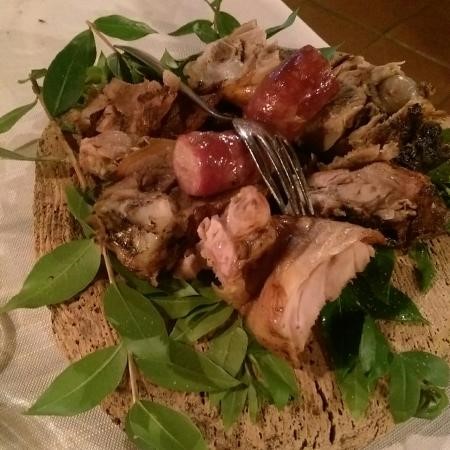Sardinia is very much Italian, but the second-largest island in the Mediterranean was part of the Byzantine, Spanish and Savoyard kingdoms before being part of the Italian Republic. All these different civilizations and their traditions are embedded in Sardinia’s culture, especially in their food.
Despite such varied multi-cultural traditions, some things are uniquely Sardinian, like the Su Porcheddu – juicy and succulent suckling pig spit-roasted to fork-tender perfection. Archeologists have found big bones in the island going back to the year 5000bC.
The crispy, golden skin and the fall-off-the-bone meat are an authentic feast and a tribute to the island’s pastoral traditions of cooking over burning embers. That’s the Sardinian way, where even the most memorable meals are apparently simple. People here have mastered the art of finding beauty in simplicity.
This meaty treat is reserved for special occasions, and it’s customary to allow the 30 to 45-day-old pig to eat abundantly, especially aromatic herbs like myrtle, thyme and fenugreek, before being prepared for the open-fire grill.
Cooking the suckling pig low and slow is the secret here. Sardinian pigs have had such historical importance that they were commonly shipped to Ancient Rome. As recorded by writer Massimo Bontempelli in 1931, this roasted dish ‘made him understand the meaning behind the sin of gluttony.’
You might think everyone can roast a pig, but when the art of spit-roasting a suckling pig has been perfected for thousands of years, you know you’re in for a treat. It is a feast that would have satisfied kings and queens and that you can still enjoy today on the fantastic island of Sardinia.

